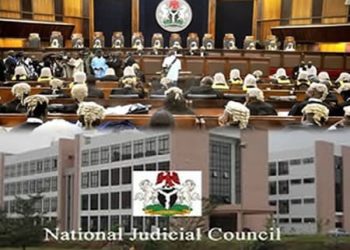Vice-President Yemi Osinbajo, on Tuesday in Abuja, said that the Federal Government had committed N50 billion toward positioning export oriented businesses in Nigeria.
Osinbajo said this at a two-day National Conference on Non-oil Export organised by the Nigerian Export Promotion Council (NEPC).
The conference with the theme, “Export for Survival: Optimising Nigeria’s Non-oil Export Potential’’ provided a platform for stakeholders in the non-oil export sector to ventilate viewpoints on current and emerging issues affecting the sector.
According to Osinbajo, the Federal Government is determined to enhance the competitiveness of our businesses within what is poised to become one of the largest regional single markets in the world.
“This is why our Export Development Fund, under the NEPC, has committed N50 billion to help position export oriented Nigerian businesses.
“`This will enable them to play competitively within this growing regional market by providing access to capacity building programmes, as well as business grants,’’ he said.
While emphasising the need to reinvigorate the non-oil sector, the Vice President said there was the need to increase productivity to support the country’s economic diversification drive.
He said that the challenges facing Nigeria’s non-oil export economy should be viewed in the trajectory of the last eight years.
“In 2021, Nigeria’s non-oil revenue stood at N1.15 trillion, representing a growth of 4.73 per cent in the fourth quarter, and a contribution of about 92.51 per cent to the nation ‘s overall Gross Domestic Product (GDP).
“In 2019, the year preceding the COVID-19 pandemic, non-oil revenue represented 92.68 per cent of our total GDP.
“The growth following that intervening year indicates the growing resilience of our non-oil export economy and our decreasing susceptibility to shocks in the global oil market.
“Beyond these numbers are human stories of bold visions and grit, persistent innovation and the unflagging spirit of Nigerians across the country, who are building model companies and businesses,’’ Osinbajo said.
He, however, urged regulatory bodies to become facilitators of businesses rather than posing as impediments to businesses.
According to him, our job as government is to assiduously enable businesses with regulatory policies, procedures and processes that are continuously optimised for greater efficiency and easing the flow of business across sectors.
“This must be coupled, urgently, with the supporting infrastructure needed to aid production, distribution, and export.
“The core mandate of our Presidential Enabling Business Environment Council (PEBEC) has recently found expression in the National Action Plan (NAP 7.0) on the Ease of Doing Business.
“It is programmed to consolidate on the removal of regulatory constraints around agro-exports, and drive the electronic filing of taxes and publication of insolvency regulations pursuant to the Companies and Allied Matters Act, 2020.
“The NAP 7.0 agro-export plan prioritises port and trade facilitation reforms to minimise cross-border trade and transport logistics for Nigerian companies with AfCFTA export compliance.
“These interventions are complemented by improved automation, including the National Single Window, which is in line with the Trade Facilitation Agreement of the World Trade Organisation.
“Reduction of cargo clearance time has also been facilitated through the installation of cargo scanners, supported by the Port Community Portal, which has been designed to foster inter-agency collaboration,’’ Osinbajo said.
Earlier, the Minister of State for Industry, Trade and Investment, Mrs Mariam Katagum said that the ministry was actively implementing the National Quality Policy (NQP) meant to guide Nigeria build a sustainable quality infrastructure.
According to Katagum, this is in order to make our products competitive in both the domestic and international markets
The Executive Director of NEPC, Dr Ezra Yakusak, said that the theme of the conference reflected the council’s approach in repositioning the non-oil export sector for increased foreign exchange earnings.
According to him, it is a deliberate effort to stimulate national consciousness to current realities in the non-oil export ecosystem.
“It is also a wakeup call for massive investment and a campaign to leverage our vast potential and increased opportunities in the sector.
“This is a sure way to sustainable economic growth and prosperity.
“We at the NEPC believe firmly that our survival as a nation depends on non-oil export.
“We have, therefore, scaled up efforts to mobilise citizens to engage meaningfully in the sector which is the nation’s next line of defence,’’ Yakusak said.
On his part, the Secretary to the Government of the Federation, Mr Boss Mustapha, said that the impact of COVID-19 and the war in Ukraine served as a reason to make Nigeria become less dependent on oil.







